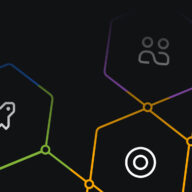Keep your virtual team connected with these proven rituals
Check out how social-media company Sprout Social makes use of the Atlassian Team Playbook to keep their teams humming while working remotely.
Listening is something that Sprout Social excels at – and at multiple levels, both inside and outside of the company.
Sprout’s business is deep social media listening. Their platform empowers its customers to analyze key conversations and trends happening around their brands, competitors and industries – which can then be used to help inform decisions across an organization.
But the listening doesn’t stop there. The Chicago-based social media company also prioritizes listening to its staff. And a key part of that attentive strategy is the Atlassian Team Playbook.
The Team Playbook is a resource hub of free workshops and activities that teams can use to plan ahead, troubleshoot difficulties, and build positive team dynamics, via a series of science-backed “Plays” (yes, just like successful sports teams use). It’s a tool that Jade Melcher, Project Manager Lead for Sprout Social, swears by.
“We attended an Atlassian event in Chicago about three years ago, and I’m so glad we did – because that’s where we first heard about Team Playbook,” says Melcher. “There was one Play in particular, DACI, which really stood out, so we incorporated that into our own team. After we saw how successful it was, we went back and added more Plays. The results have been outstanding: Team Playbook has helped us raise productivity and morale, company-wide.”
The Play that helps teams make decisions
DACI (pronounced daycee) stands for “driver, approver, contributor, informed.” It creates a clear decision-making framework, allowing team members to have constructive disagreements before reaching an effective resolution. You can use our handy, user-friendly Confluence template to get started.
“Within Atlassian, we’re constantly experimenting with new Plays; new ways of bringing our teams together,” says Atlassian team coach Eugene Chung, one of the brains behind Team Playbook. “When we see something we feel could add value to teams outside of Atlassian, we ship it to Team Playbook, in order to give everyone access to it.”
DACI might be one of the most prevalent Plays on the roster right now, but there are others that are equally as successful – and effective. Sprout Social regularly deploys a number of them, including Project Kickoff, Stand-ups, Retrospective and Team Health Monitor.
“Team Playbook has strengthened how we plan and execute on our work by providing invaluable guidelines, guardrails, and rituals for us to follow,” says Melcher. “We’ve been able to use these Plays to define roles and responsibilities far more clearly on new projects – so everyone knows exactly what’s expected of them, and everything keeps running smoothly. Put simply, DACI has been super helpful in how we organize our work – and how we hold accountability as projects progress.”
Sprouts of success
Innovative teamwork has always been at the core of Sprout Social. It’s a dynamic which has seen the company grow from a start-up founded by four friends in 2010 to a major global player with more than 700 employees – working with over 25,000 brands and agencies worldwide.
Fruitful partnerships with social media giants like Twitter, Instagram, Facebook, Pinterest, and YouTube prompted the company to expand from its Chicago headquarters and add offices in Seattle and Dublin. But then, the pandemic propelled them – like everyone else – into the world of remote working. It’s a situation the company adapted to swiftly, with a little help from Team Playbook, of course.
“Playbook rituals have been absolutely key in aligning and connecting our teams during lockdown – and in helping them to understand what’s expected of them while we’re all working remotely,” says Melcher. “We’re all able to jump into these Plays together and really use them as spaces to connect on each project, and with each other, too. They’ve truly changed how we work for the better.”
That was always the plan, says Chung, because these are solutions for teams, by teams.
“Within a remote work context, teams are missing some of the feedback loops they need in order to be effective,” he says. “If you don’t exercise those muscles regularly, they’re going to get weak. That’s where the Team Playbook comes in: it can help rebuild those muscles – and in some cases, it can help make them stronger than ever.”
Prioritizing team health during remote work
Chung and Melcher agree that one of the most helpful Plays in terms of remote working is the Team Health Monitor: a collaborative means to diagnose how well your team is doing on a particular project, by rating performance against the eight attributes most commonly found among healthy teams.
“Health Monitor is a Play we were using quite a bit before lockdown,” reveals Melcher. “It gave us an incredibly useful place to reflect on our ways of working across a variety of categories. From there, we could prioritize the items we wanted to fix – and the actions we needed in order to fix them.” Over the past year, they’ve also relied heavily on other Plays, including Retrospective, Project Kickoff, and Standup.
As with any new behaviors, some of the Plays come with steeper learning curves but with perseverance, they can deliver powerful results. After three years of successful Plays, Sprout Social is very much testament to that.
“By leveraging the Atlassian Playbook we’ve been able to incorporate new practices into how we work as a team – and that’s directly led to greater alignment and better results,” says Melcher.
“The Playbook has strengthened how we plan and execute on our work, as well as formalizing our ways of reflecting on that work, so we can continue to live up to our values of seeking simplicity and solving hard problems.”
Want to unleash the power of your team even further? Join our Atlassian Community forum to find out how other teams that are using Plays.













































